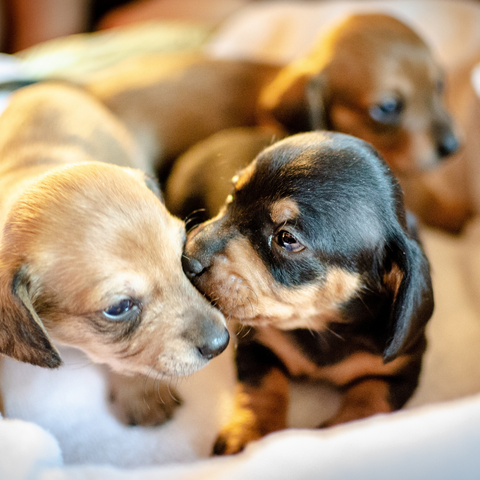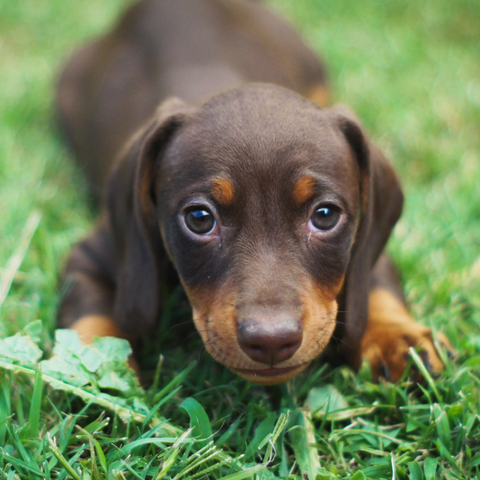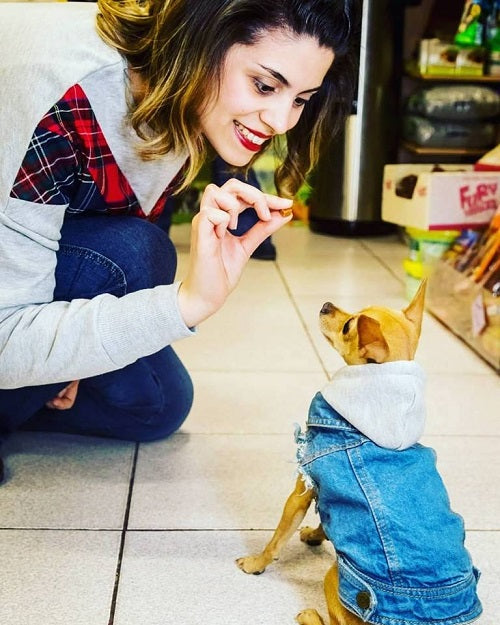
The stages of dog development: From puppy to maturity
Share
Every dog goes through distinct stages of development from the moment it is born until it matures. It is very important to know what to expect at each stage so that you can give your puppy everything he needs and invest in his training.
So let's see next what these stages are and what to look out for in each of them.

First two weeks
At this stage the puppy is blind and deaf, so it moves only based on the smell towards its mother. It is a stage of attachment to the mother and the puppy must not be separated from her under any circumstances. The important thing is that he lives in a protected environment, so that he can properly start his first contact with the world around him.
Third week
It is the stage where the puppy slowly begins to see, move and teeth. It is, in fact, the first phase of socialization, as the puppy interacts with its siblings, while also getting used to the presence of people.
While still not taking it away from its mother, you can start petting it so it gets used to human presence.
1-3 months
It is the most important phase of the dog's socialization. From the second month the puppy can come home with its human and then begins its essential contact with the stimuli around it.
It is very important that he has plenty of stimuli with both other animals and people, so that he forms positive impressions about the world and other living beings. If this socialization stage is done correctly, then the puppy will become a confident and stress-free dog.

4-12 months
The main phase of development begins now and is completed with the sexual maturity of the dog which can come at 6 or even 12 months (depending on the breed). Now is the time to focus on training the animal, teaching it basic commands and boundaries so that it gains confidence.
At this stage, he is also building his relationship with you, so affection and tenderness will make him a happy dog who will enjoy everyday life with his loved ones.
1-2 years old
This stage can start even earlier (even at 6 months) depending on when the dog will enter puberty, i.e. when it will have reached sexual maturity. We understand this when the female comes into estrus and when the male starts to lift his leg to urinate.
As with humans, adolescence has plenty of conflict, mistrust, and disobedience on the part of the dog. So continuing to train him with positivity and love is of utmost importance.
Now is when the dog will build its definitive relationship with you and the rest of the family as well as the animals around it. Patience, persistence and quality engagement with him will help you overcome this "difficult" stage that lays the groundwork for later.

When the dog reaches the age of three, it has formed its character, acquired its experiences and generally completed its development. So now you won't have to expect significant changes in his behavior.
Of course, difficult times can always come and test your limits, but with love and a sense of care on your part, you will be able to enjoy a calm and fulfilling relationship with your loyal friend!




